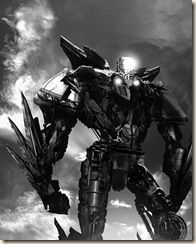By day I'm a software developer, so I'm well acquainted with the tension between perfection and pragmatism. When software is "finished" it still has countless bugs and blemishes and I always cringe to see it go out into the world. But the fact is, millions of people use the software every day and it generally does what they need it to do. If we waited until it was perfect, it would never get used at all.
But software is business. You have to make tradeoffs like that. What  about art? If a painting, or a novel, or a performance has its desired effect on the audience, is that good enough, or does it deserve to be polished to perfection? And artists need to eat too. Where's the line between art and business, anyway?
about art? If a painting, or a novel, or a performance has its desired effect on the audience, is that good enough, or does it deserve to be polished to perfection? And artists need to eat too. Where's the line between art and business, anyway?
But those questions are where this story ended up. Where it started was a simple challenge to myself: take a science fiction trope and revitalize it by turning it into a fantasy story. But what to use? Computers? There are a million opportunities there. Space travel? Hmm... Robots? That struck a chord. What would be the fantasy version of a robot? Maybe a golem, an artificial creature created from clay to do the bidding of humans. No, I wanted a more literal robot. But since this was fantasy, it would not be called a robot; it would be an automaton, and instead of being powered by electricity and controlled by circuits, it would get its strength from tightly coiled springs and be full of intricate gears and levers and pneumatic tubes.
 From there, ideas zinged left and right. Back to computers, I was inspired by the idea of computerized chess and the quest to develop a machine that could beat the world's best human players. Deep Blue became my mechanical swordsman (and I suppose Garry Kasparov became Lybron, although any resemblance there is coincidental). Madrigal's character was easy, but that's because he was a cliché: the too-proud inventor. I needed someone to clash with him. It was when I came up with my narrator, Cetta--the not-quite-apprentice, serving as his hands--that the story fully came to life.
From there, ideas zinged left and right. Back to computers, I was inspired by the idea of computerized chess and the quest to develop a machine that could beat the world's best human players. Deep Blue became my mechanical swordsman (and I suppose Garry Kasparov became Lybron, although any resemblance there is coincidental). Madrigal's character was easy, but that's because he was a cliché: the too-proud inventor. I needed someone to clash with him. It was when I came up with my narrator, Cetta--the not-quite-apprentice, serving as his hands--that the story fully came to life.
I dislike twist endings that depend on hiding the main character's thoughts or motivations from the reader. But this story had a problem: Cetta didn't actually grow or change by the end of it. Giving the main character some sort of transformation is key to a satisfying story. I saw an opportunity to do something I normally dislike: use an unreliable narrator to conceal one key motivation (although abundant clues to that motivation are scattered throughout) until after the fact. The effect, I hope, is that even though Cetta hasn't been transformed, the ending is satisfying because your understanding of her has been.
As for me, do I agree with the choice Cetta made? Maybe. I'll say this much: I empathize with her. I understand where she's coming from, and as far as this story is concerned she couldn't have done anything else.
--Scott Mikula
No comments:
Post a Comment